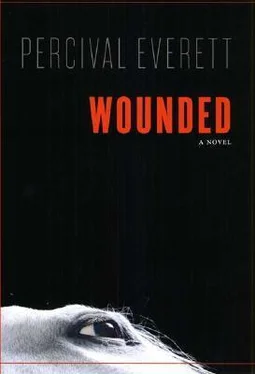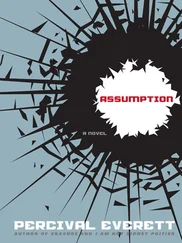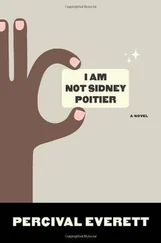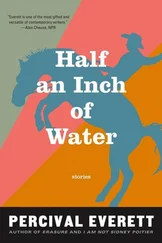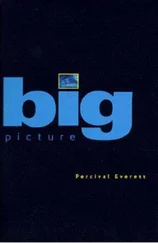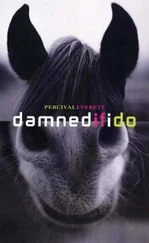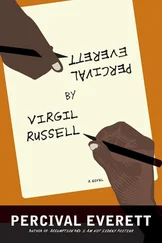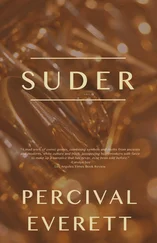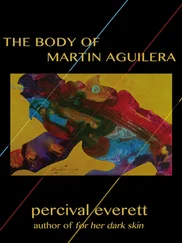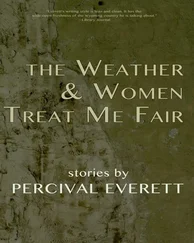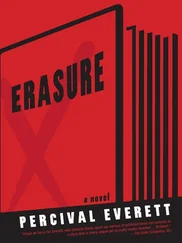Gus tried to call the small-animal vet in town without success. I’d hardly ever used him anyway. My horse vet, Oliver, was two hundred miles away doing some work for a pack outfit in the high country. I looked at the little coyote and imagined her as a tiny horse. I went to the refrigerator and got some antibiotics, divided what I would have given a horse by a thousand and injected it. Then I mixed up some sugar and warm water and asked Gus to try to get some of it into the pup. I thought it might help with the shock.
“You okay in here?” I asked.
Gus didn’t look up. He used a dropper to put the sugar solution on the pup’s lips. “I’m fine.”
I called Zoe twice, but she wouldn’t budge from Gus’s side, so I left her. I went back out to put Felony away. With all my concern over the coyotes I hadn’t given much thought to what Felony might unexpectedly do. The horse had been great, steady, and still felt so as I finished unsaddling him and led him to his stall.
I returned to the house and made a bed out of sheets in the corner of the study. Gus came in and put the pup down in the nest. Zoe came close and Gus stopped her. I put a hand on his shoulder. “Gus, let Zoe check her out.”
Zoe sniffed the pup, then lay down, curling herself around the little thing. She gently licked at the burned leg.
“Maybe that’s the best thing,” Gus said.
I thought he was probably right.
Gus asked me if I was hungry and I told him I wasn’t. He then made me a sandwich and I ate it. That night I slept in the den on the recliner. Zoe stayed put beside the coyote.
The next morning, the puppy was struggling to move a little more. She would take a step, become exhausted, and fall over. Zoe remained by her. Gus tried again with the sugar solution, then with some warm milk. The pup licked at her lips finally and I could see Gus’s shoulders relax. I went out and fixed what needed fixing, worked a couple horses, then came back to check on the patient. I didn’t want to go into town, but Gus pretty much pushed me out of the house.
No doubt because of the coyote, I was hating people more than usual as I drove into town. I drove past the Wal-Mart that I refused to enter, past the McDonald’s that I refused to enter and past the church that I refused to enter. I glanced over at the parking lot of the Rusty Spur Motel, wondering if David Thayer’s car was there. When I’d called to set up lunch with David, he sounded cool. But why not? I hadn’t seen him since he was a kid. To him I was just some old fogey mate of his father’s. That was true enough. I told him we’d meet at the Little Winds Café. I’d suggested it because it worked at some kind of cosmopolitan front and I thought David might appreciate the effort. But also the food was the best in Highland, though that statement in and of itself was not all that significant.
I arrived first. The hostess, an overly skinny cowgirl I remembered from the barrel-racing event at the summer rodeo, led me to a booth against the far wall.
“How’s this, Mr. Hunt?” she asked.
“Just fine,” I said. “You’ve got the drop on me though. I don’t know your name.”
“It’s Becky.”
“Thanks, Becky.”
Highland was a small enough town that most people had a vague knowledge of who everyone was, but it did facilitate matters to be different in some way. In my case, in was the color of my skin. It could easily have been a problem for some folks, but it hadn’t turned out to be. I, of course, realized that I was referred to as the “black rancher.” I suppose had I been extremely handsome, I would have been the “good-looking, black rancher.”
I studied the menu, remembering a time when I would not have needed the narrow specs perched on my nose that fit too tightly against my temples. From where I sat I could look across the room and out the window at the street and the storefronts on the other side. A monstrous SUV pulled up at Ken’s Sporting Goods and four men got out, stretching and looking at the sky. I knew they were buying fishing licenses and I was a little envious. They were no doubt headed up into the Winds, with a stop first at the tribal office for permission, then the drive up. I considered the long drive through the reservation to the Owl Creek hills. The low, red and yellow ochre range always relaxed me, in spite of the heat, in spite of the arid desolation, probably because of it. I actually had a jar of soil from there on a shelf in my barn.
Two young men entered the restaurant. One was of medium height, about six feet, the other a littler taller and in the taller man I could see Howard’s eyes and cheekbones. They wore jeans, new Western boots and short-sleeved shirts. They were not so differently dressed from others in town. They were healthy looking and strong enough, but their postures said they weren’t ranch men. They walked like nothing really hurt.
I stood and signaled to them with a wave.
“John?”
“That’s me.” I shook David’s hand. I could see his mother in his face.
David introduced me to his friend, Robert. Robert managed to seem aloof without looking away.
I nodded and shook the man’s hand. “Come on, let’s sit down,” I said. I straightened the napkin in my lap and looked at David. “I can’t believe you’re all grown up. Last time I saw you, you were fifteen, I think. Considerably shorter.”
David nodded.
“I don’t mean to embarrass you,” I said, “but what a long time. So, you’re in college now?”
“University of Illinois,” David said.
“Me, too,” from Robert.
“How’s your mother?” I asked.
“I suppose Dad told you.”
“Yes, he did. I was sorry to hear about that. Is she okay?” I felt somehow caught, having attempted to play dumb.
David nodded, again.
“So, what brings you to the outskirts of no place?” I asked. I hated working at conversation, but he was my friend’s kid and I wanted him to feel comfortable.
“We’re here for a rally.” David said.
“Rally? What kind of rally?”
The waitress came. She was obviously intrigued with the young men and she admired them while she named the specials. “The tortilla soup is real good,” she said at the end of the list. “Well, I’ll give you guys a few minutes.”
David and Robert laughed a little.
“What is it?” I asked.
“Nothing,” Robert said.
“What kind of rally?” I asked again.
“It’s a gay pride rally,” Robert said.
“I see.” I took a sip of water.
“Because of the killing that took place here last week,” David said.
I nodded. “Awful thing. When is this rally?”
“Tomorrow at noon.” David ran a hand over his hair. “It’s going to be in front of the city hall building. Tell me, what is this place like?”
“Place?” I asked.
“This town,” Robert said.
I shrugged. “It’s a little town. It’s okay. Mostly white. Indians get treated like shit. You know, America. The murder hit everybody pretty hard.”
Robert might have smirked. I felt it as much as I saw it.
“My father’s a bastard,” David said. It came out of nowhere and not.
I studied his eyes.
“He screwed around and hurt my mother. He had an affair. He didn’t think about her or me or anything.”
“I didn’t know that,” I said.
David was staring at me, as if somehow I was representing his father at that moment. “He’s a real bastard,” he said again.
Robert leaned in, perhaps to break the tension. “So, what do you do here?”
“I raise and train horses,” I told him. “I’ve got a ranch about thirty miles from town. I used to run cattle, but not anymore.”
“How do you know David’s father?” Robert asked.
I glanced at David. “We were at college together. Berkeley.”
Читать дальше
